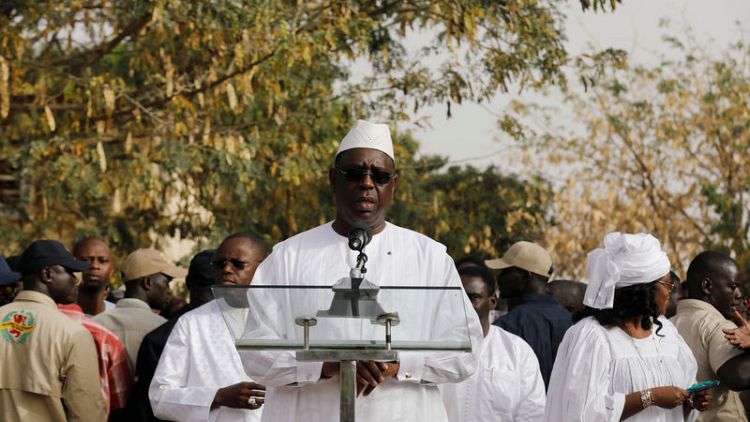DAKAR (Reuters) - Senegal President Macky Sall has pardoned one of his chief political rivals, the charismatic former mayor of Dakar, Khalifa Sall, who was jailed in 2018 on corruption charges.
Khalifa Sall, who is no relation to the president, was arrested in March 2017 on suspicion of embezzling 1.8 billion CFA francs ($3 million) in public funds. Last year, he was sentenced to five years in jail.
He was pardoned with two others, according to a statement from the Presidency on Sunday. Khalifa Sall's lawyers confirmed the decision.
"It's a salutary decision since he was arbitrarily imprisoned, but the fight is not over. We want an amnesty," said Khalifa Sall's lawyer, Ousseynou Fall.
With four largely peaceful transitions of power since independence from France in 1960, Senegal is seen as a beacon of democratic stability in a restive region.
Yet the president's political opponents saw Khalifa Sall's imprisonment as a political hit job based on false charges to keep one of the country's best-known and popular politicians out of a presidential election that Macky Sall won decisively in February this year.
Macky Sall has denied such charges, but his treatment of Khalifa Sall raised questions among international observers about the president's dedication to free and fair elections.
(Reporting by Diadie Ba; Writing by Edward McAllister; Editing by Peter Cooney)
